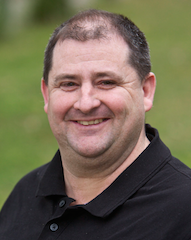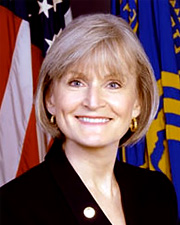 Last week, HL7 held it’s annual plenary meeting in Baltimore at the Hyatt Regency...For the FHIR project, our main attention was the ballot. Across the core standard, and multiple implementation guides, we received >800 detailed comments as part of the ballot. This represents a slight increase over the last ballot, but there was a clear change in the focus of the comments – there was a significant drop in the number of comments relating to the infrastructure, and much more focus on the domain content, and it’s applicability to real world problems. This is a clear marker of the growing maturity of the standard. We continue to expect that we’ll publish FHIR release 3 at the end of this year.
Last week, HL7 held it’s annual plenary meeting in Baltimore at the Hyatt Regency...For the FHIR project, our main attention was the ballot. Across the core standard, and multiple implementation guides, we received >800 detailed comments as part of the ballot. This represents a slight increase over the last ballot, but there was a clear change in the focus of the comments – there was a significant drop in the number of comments relating to the infrastructure, and much more focus on the domain content, and it’s applicability to real world problems. This is a clear marker of the growing maturity of the standard. We continue to expect that we’ll publish FHIR release 3 at the end of this year.
health data
See the following -
Getting a slice of PHI
There is a communicative aspect to medicine that many tend to gloss over. The very heart of medicine is having one person sit down and talk about themselves to another. Read More »
- Login to post comments
Global Health Observatory – The One-Stop Shop For Health Data
A researcher wanting to find out which countries have the highest rates of tuberculosis can find it hard to pin down the latest information or decipher it from hundreds of columns of numbers often presented in a format that can overwhelm even the most passionate data analyst. Read More »
- Login to post comments
Golden Age Of Healthcare: Open Health Data
Healthcare is complex, complicated, and touches every single individual on this planet. The average spend per capita on healthcare costs is rising tremendously year over year and the governmental focus seems to be on increasing premiums, changing tax rates and focusing completely only on efficiency gains. Read More »
- Login to post comments
Google Glass Should Be Banned For Privacy Reasons Say One In Five UK Residents, Per New Survey
Google Glass isn’t even a product released for public consumption yet and already people are up in arms about its effect on personal privacy. Read More »
- Login to post comments
Government as a Platform for Progress: HHS’s Open Government Plan
 One of the first actions President Obama took after taking office was to direct federal agencies to find new ways to increase transparency, collaboration and public engagement. Since then, one of our top priorities at HHS has been to make our Department more open and accountable to the people we serve. With the publication of our fourth HHS Open Government Plan, we’re building on our past performance in making government more transparent to the public and engaging in new ways of collaborating and partnering with our stakeholders.
One of the first actions President Obama took after taking office was to direct federal agencies to find new ways to increase transparency, collaboration and public engagement. Since then, one of our top priorities at HHS has been to make our Department more open and accountable to the people we serve. With the publication of our fourth HHS Open Government Plan, we’re building on our past performance in making government more transparent to the public and engaging in new ways of collaborating and partnering with our stakeholders.
- Login to post comments
Government's Push to Unleash Health Data 'Transformative'
FierceHealthIT recently caught up with founder and Chief Instigator Mark Scrimshire in Washington, D.C., to ask him about the importance of HealthCamp and to get his thoughts on the state of health IT in the U.S. today. Read More »
- Login to post comments
Grahame Grieve's FHIR report from Baltimore HL7 Meeting
- Login to post comments
Gropper Named CTO Of Patient Privacy Rights
Patient Privacy Rights in Austin, Texas, added Dr. Adrian Gropper last month as its chief technology officer. Read More »
- Login to post comments
Growth Of SMART Health Care Apps May Be Slow, But Inevitable
This week has been teaming with health care conferences, particularly in Boston, and was declared by President Obama to be National Health IT Week as well. I chose to spend my time at the second ITdotHealth conference, where I enjoyed many intense conversations with some of the leaders in the health care field [...]. Read More »
- Login to post comments
Guess What: Docs Don't Like EHRs
 It's kind of "dog-bites-man" type news, but there is even more evidence that physicians not only don't think EHRs are helping them but actually see them as contributing to burnout. Researchers at the Mayo Clinic found that use of EHRs (or computerized physician order entries -- CPOEs) was associated with lower satisfaction with time spent on clerical tasks, with nearly half of physicians saying the amount of time spent on clerical tasks was unreasonable. No wonder the AMA CEO recently complained that physicians were turning into the "most expensive data entry force on the face of the planet."
It's kind of "dog-bites-man" type news, but there is even more evidence that physicians not only don't think EHRs are helping them but actually see them as contributing to burnout. Researchers at the Mayo Clinic found that use of EHRs (or computerized physician order entries -- CPOEs) was associated with lower satisfaction with time spent on clerical tasks, with nearly half of physicians saying the amount of time spent on clerical tasks was unreasonable. No wonder the AMA CEO recently complained that physicians were turning into the "most expensive data entry force on the face of the planet."
Harry Greenspun's 4 Forces Driving Personal mHealth
In a world boasting seemingly futuristic technologies such as Wi-Fi-enabled pill bottles and pills that trigger an e-mail alert upon hitting the stomach, there are still hospitals that have yet to grant patients access to their electronic health records. Read More »
- Login to post comments
Hatch Wants To Pause, Reassess Meaningful Use
Despite lauding technology's potential to transform healthcare for the better, Sen. Orrin Hatch (R-Utah) said he thinks Meaningful Use needs to be reassessed. Read More »
- Login to post comments
Health 2.0 and ONC Launch New Challenge Through the Investing in Innovation (I2) Initiative
Today, Health 2.0 and the Office of the National Coordinator for HealthInformation Technology (ONC) announced the launch of a new Investing in Innovation (i2) Initiative competition that challenges developer communities to create innovative health information technology (HIT) solutions. Read More »
- Login to post comments
Health Care Leaders Gather To Address Challenges, Opportunities Of Open Health Data At Health Datapalooza 2014
The Health Data Consortium (HDC),a non-profit advocacy and membership organization dedicated to mobilizing health data to transform the U.S. health care system, announced keynote speakers for Health Datapalooza 2014, being held at the Marriott Wardman Park on June 1-3 in Washington, D.C...
- Login to post comments
Health Data: Are You with the Sharers or the Hoarders?
In the health care system, open data sharing can improve patient care at two critical levels: At the health care provider level, open data exchange can ensure that each caregiver receives the right information at the right time to deliver the best care – no matter who employs them or which technology platform they are on...This begs the question: Is there a societal obligation to share data broadly in health care?
- Login to post comments